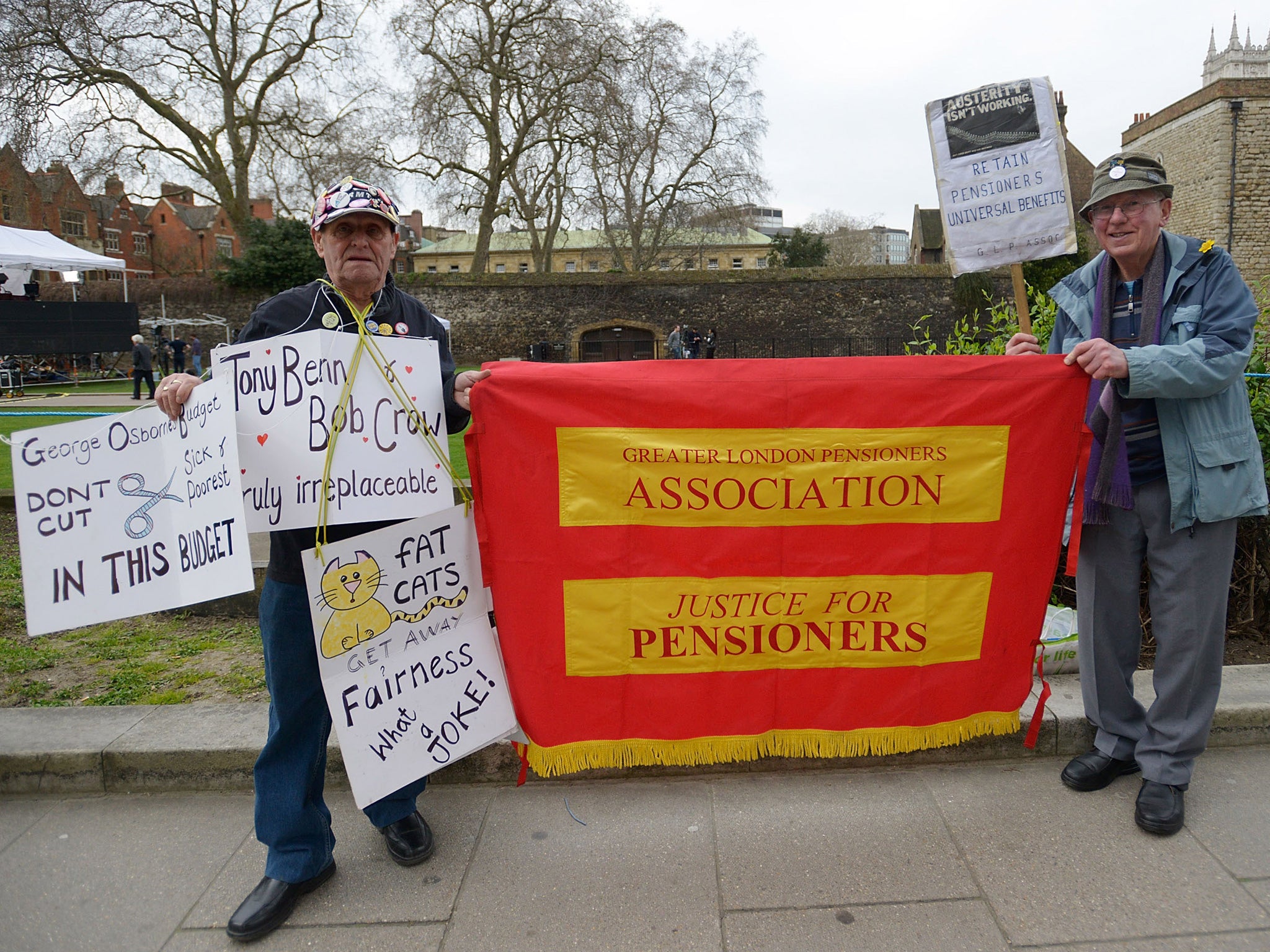Budget 2014: George Osborne unveils major pensions and savings shake-up
Chancellor announces pensioner 'bond' paying interest of up to four per cent a year

George Osborne has announced the biggest shake-up to pensions in nearly a century as he unveiled a Budget which he claimed would promote savings and investment across Britain.
Under the Chancellor's plans around 13 million people in defined contribution pension schemes will no longer be forced to buy annuities - that give them a guaranteed income when they retire.
Instead they will be allowed to take as much or as little of their pension pots as they wish at any time to invest or spend themselves and the taxation on such withdrawals will be greatly reduced.
In addition he announced the creation of a new Government pensioner 'bond' paying interest of up to four per cent a year and run by National Savings and Investment.
For savers in general he announced the merging of cash and share ISAs. In the new combined ISAs savers will be able to save up to £15,000 a year tax free.
Budget 2014: George Osborne's speech - analysis, summary and reactions
Show all 12"This is the most far-reaching reform to the taxation of pensions since the regime was introduced in 1921," Mr Osborne told the House of Commons.
"The message from this Budget is this: You've earned it, you've saved it. This government is on your side."
Among other measures announced in the Budget were:
* Changes to the way in which environmental charges are placed on energy bills which Mr Osborne claimed would save consumers £15 a year over and above the £50 annual saving from earlier deal with energy companies to cut green levies.
* Extra £140m for repairs and maintenance to flood defences. Extra £200m for potholes
* Tobacco duty up 2% above inflation. Fuel duty rise planned for September halted. Cider duty frozen. Beer duty cut 1p a pint. Taxes on whisky and other spirits frozen. Bingo duty halved.* Personal tax allowance to be raised to £10,500 next year. Threshold for 40p tax up from £41,450 to £41,865 next month and to £42,285 next year.
* New pound coin to be introduced in 2017 to tackle counterfeits, but vending machines, trolleys, meters will be affected.
* 1.5m more jobs over next five years and earnings to grow faster than inflation
* Inheritance tax waived for emergency services personnel who 'give their lives protecting us'
* Cash and shares Isas merged from 1 July with new tax-free savings limit of £15,000.
* GDP growth forecast to be 2.7% this year, then 2.3%, 2.6%, 2.6% and 2.5% in following years - making UK economy £16 billion bigger than predicted.
* Deficit revised down to 6.6% this year, and forecast to fall in following years before going into surplus of 0.2% in 2018/19
On the wider economy Mr Osborne said that the Office for Budget Responsibility (OBR) was now predicting that the UK economy would grow by 2.7 per cent this year - up from its previous estimate of 2.4 per cent.
But he warned that cuts would continue and announced a cap of £119 billion on welfare bills including housing benefit and tax credits. Only the State Pension and the cyclical unemployment benefits would be excluded.
The cap will rise, but only in line with forecast inflation, to £127 billion in 2018-19.
The Chancellor told MPs: "Britain should always be proud of having a welfare system that helps those most in need. But never again should we allow its costs to spiral out of control and its incentives to become so distorted that it pays not to work."
"If you're a maker, a doer or a saver: this Budget is for you. It is all part of a long-term economic plan - a plan that is delivering security for the people of this country."
But it was the changes to pensions - which although complicated - are likely to have the greatest long term impact.
The changes effectively mean that pensioners are finally to be trusted with their own money. In the past, by law, individuals not in a final salary pension had to buy what was known as an annuity when they retired.
This financial product guaranteed them an annual income for the rest of their lives - but were often poor value for money and allowed them no flexibility to invest their money individually.
In future there will be no compulsion to buy an annuity and withdrawals out of pension funds over the 25 per cent tax free cash rate will be taxed at normal marginal rate, not 55 per cent.
The changes to limits take effect from March 27 and people will be offered free and impartial advice on how best to invest the pension pot they have built up.
Subscribe to Independent Premium to bookmark this article
Want to bookmark your favourite articles and stories to read or reference later? Start your Independent Premium subscription today.

Join our commenting forum
Join thought-provoking conversations, follow other Independent readers and see their replies